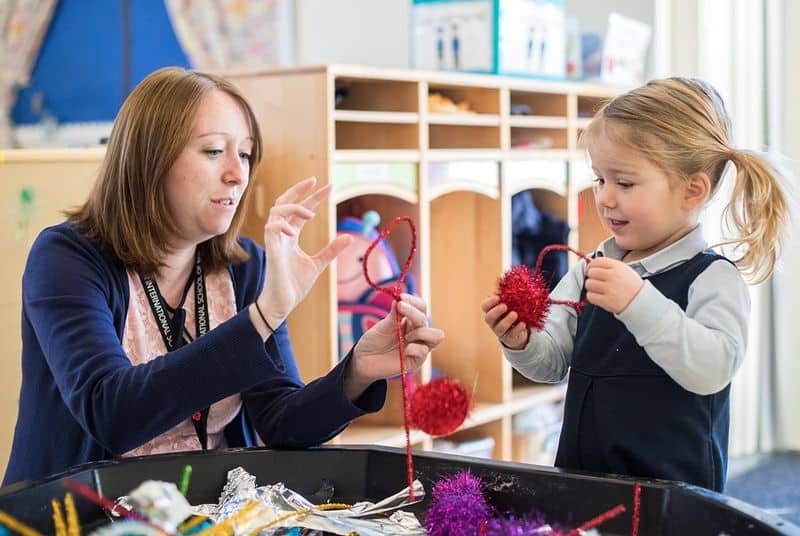Parenting is a journey filled with joy, challenges, and an overwhelming amount of advice, often unsolicited. While some tips can be invaluable, others can lead you astray, potentially impacting your child’s development and your own peace of mind.
It’s crucial to discern the helpful from the harmful, as not all advice is created equal. This blog post aims to shed light on some of the worst parenting advice out there, the kind that should be ignored at all costs. By highlighting these misguided tips, we hope to empower parents to trust their instincts and seek guidance that truly supports their family’s unique needs and values.
1. Let Them Cry It Out

They say letting a baby cry it out teaches independence. However, this advice can be detrimental. Babies cry to communicate needs, not manipulate. Ignoring their cries may lead to insecurity and anxiety. Instead, try comforting them to build trust. Responding to a baby’s cries fosters connection and emotional growth. It’s crucial to remember babies need to feel safe and loved. While sleep training can be beneficial, it should be done with empathy. Understanding their needs and responding appropriately is key. Avoid advice that suggests indifference to your child’s emotions.
2. Spoiling with Affection

Some argue showering children with love and affection spoils them. Contrary to this belief, affection is vital for emotional development. Children nurtured with love tend to grow into confident, secure adults. There’s no such thing as too much love. Affection helps children feel valued and understood. It’s not about smothering, but about creating a supportive environment. Balance discipline with affection for healthy growth. Ignore advice that discourages showing love. Embrace every moment of connection. Focus on quality time to nurture strong family bonds. Every hug counts.
3. Strict Routines Always Work

While structure is beneficial, strict routines can backfire. Children thrive with flexibility and understanding. A rigid schedule might cause stress and rebellion. Adaptability teaches resilience and problem-solving. It’s important to strike a balance. Allow for spontaneity and creativity. Encouraging flexibility fosters independence. Children learn to adapt better in a less rigid environment. Routines should serve the family, not the other way around. Embrace changes and adjust as needed. Ditch advice that insists on inflexible schedules. Consider what works best for your child’s temperament and family dynamics.
4. Punishment Over Discipline

The idea that punishment is more effective than discipline is misleading. Discipline aims to teach, while punishment focuses on retribution. It’s essential to guide children through understanding consequences rather than instilling fear. Positive discipline encourages responsibility and self-regulation. Instead of punitive measures, try constructive communication. Teach empathy and problem-solving skills. Encourage understanding rather than obedience. This approach nurtures cooperation and respect. Avoid parenting advice that promotes fear-based tactics. Foster a supportive environment where learning from mistakes is encouraged. Prioritize guidance over punishment to build strong character.
5. Comparisons Motivate

Comparing children to others is often thought to spark motivation, but it usually breeds insecurity. Each child is unique, with their own strengths and weaknesses. Focusing on personal growth rather than comparison is vital. Praise effort, not just achievement. Encourage self-improvement and resilience. Celebrate individual milestones and progress. Comparisons can lead to sibling rivalry and low self-esteem. Foster an environment of support and encouragement. Avoid advice that pits children against each other. Highlight their unique qualities and talents. Encourage a love for learning and self-discovery. Nurture their individual journey.
6. Tough Love is Best

Tough love is often praised as a means to build character, but it can harm relationships. While boundaries are essential, empathy is equally crucial. An authoritarian approach may lead to rebellion and resentment. Balance firmness with understanding to foster trust. Nurture open communication and emotional safety. Encourage dialogue rather than dictating rules. Tough love can stifle emotional growth and connection. Prioritize empathy and listening. Avoid advice that dismisses emotions. Create a nurturing environment where feelings are acknowledged. Support your child through challenges with compassion.
7. One-Size-Fits-All Parenting

Parenting is not one-size-fits-all. Each child and family dynamic is unique. Applying a universal approach can be counterproductive. What works for one family might not work for another. Understand your child’s needs and adapt accordingly. Be flexible and open-minded. Tailor your approach to suit your family’s values and circumstances. Avoid rigid parenting models and embrace diversity. Celebrate the differences and learn from others. Avoid advice that claims universal solutions. Focus on building a parenting style that resonates with your family. Encourage growth by being adaptable and responsive.
8. Start Academics Early

Many believe starting academics early guarantees success. However, pushing formal education too soon can cause stress and burnout. Early childhood is for exploration and play. Foster creativity and curiosity instead. Encourage learning through play and discovery. Focus on developing social and emotional skills. Academic pressure can diminish a love for learning. Allow children to learn at their own pace. Avoid advice that emphasizes early academic drilling. Support their natural interests and passions. Nurture a balanced approach to education. Let them enjoy childhood and build a solid foundation for later learning.
9. Ignore Tantrums

Ignoring tantrums is a popular piece of advice, but understanding their cause is crucial. Tantrums are a form of communication. Children need help navigating overwhelming emotions. Offer comfort and guidance rather than ignoring them. Validate their feelings and teach coping strategies. Help them articulate frustrations and find solutions. Ignoring might escalate the situation and damage trust. Encourage emotional expression in healthy ways. Avoid advice that suggests dismissiveness. Focus on empathy and patience. Teach them emotional intelligence and resilience. Support them through their emotional journey with understanding.
10. Screen Time is Always Bad

Screen time is often demonized, but not all screen time is harmful. It’s about balance and content quality. Educational apps and programs can support learning. Encourage moderation and monitor content. Set boundaries without completely banning technology. Teach responsible usage and digital literacy. Screen time can be a valuable learning tool when used appropriately. Avoid advice that generalizes all screen time as negative. Foster critical thinking and creativity through technology. Support their interests and hobbies. Engage with them during screen time to enhance learning experiences. Encourage healthy digital habits.
11. Parenting Comes Naturally

The notion that parenting comes naturally to everyone can be misleading. Each parent-child relationship is unique, with its own set of challenges. Seeking help and learning is part of the journey. Embrace the learning curve and don’t shy away from asking for support. Parenting is a skill developed over time. Engage with communities and resources for guidance. Avoid advice that undermines the complexity of parenting. Celebrate successes and learn from failures. Trust your instincts while being open to new ideas. Empower yourself with knowledge and support. Every parent’s journey is valid.

Well, hello there!
My name is Jennifer. Besides being an orthodontist, I am a mother to 3 playful boys. In this motherhood journey, I can say I will never know everything. That’s why I always strive to read a lot, and that’s why I started writing about all the smithereens I came across so that you can have everything in one place! Enjoy and stay positive; you’ve got this!

